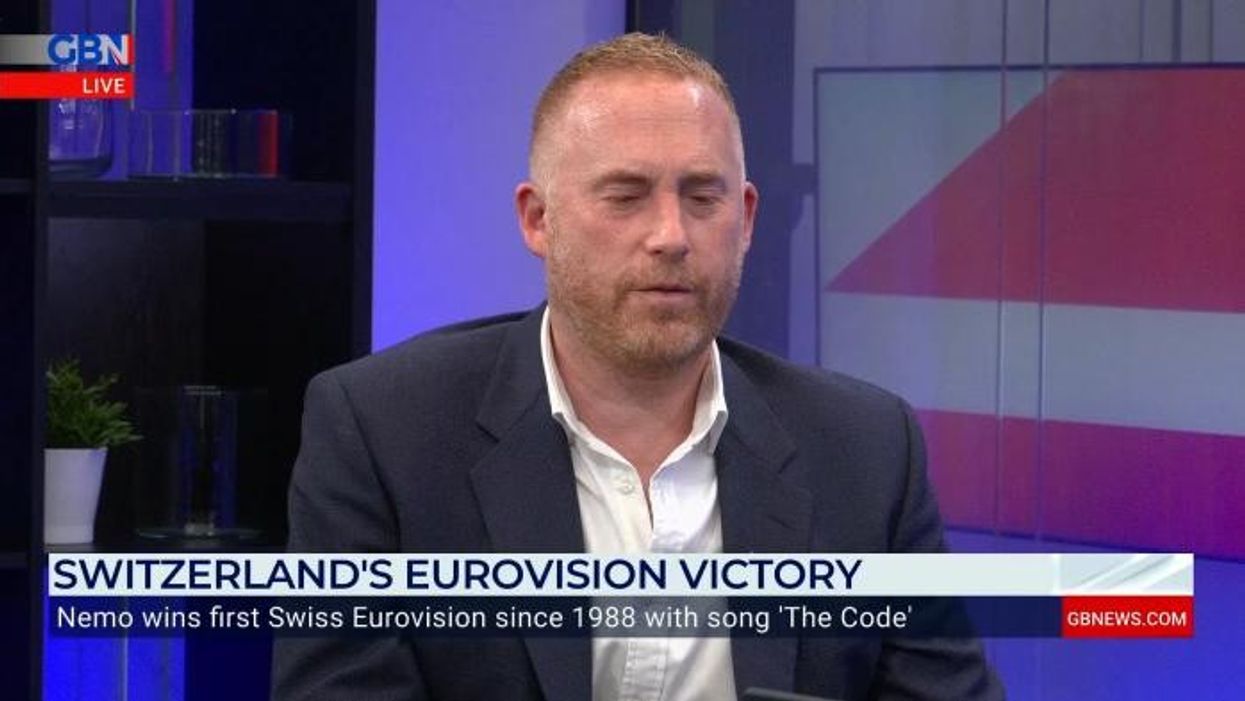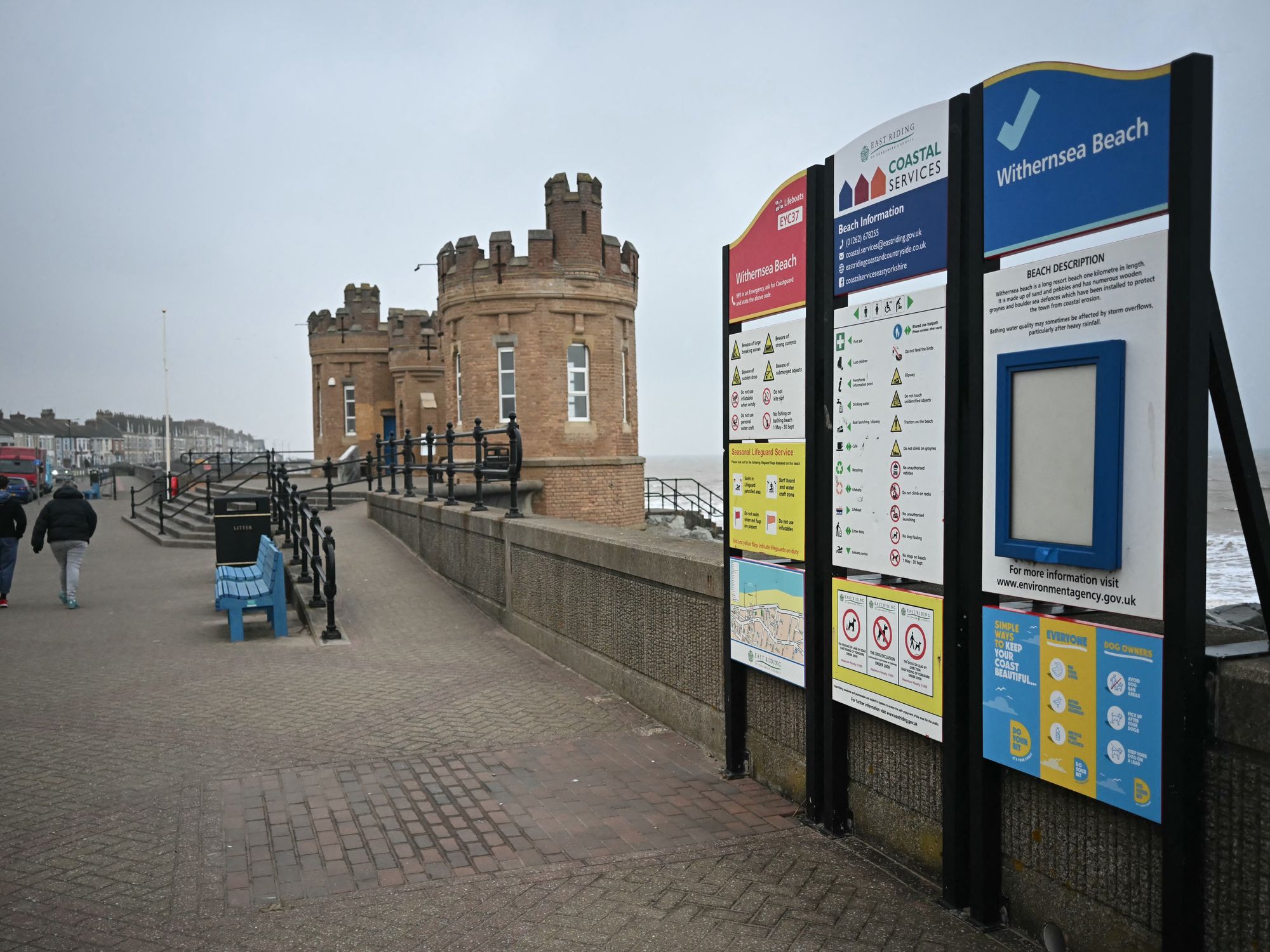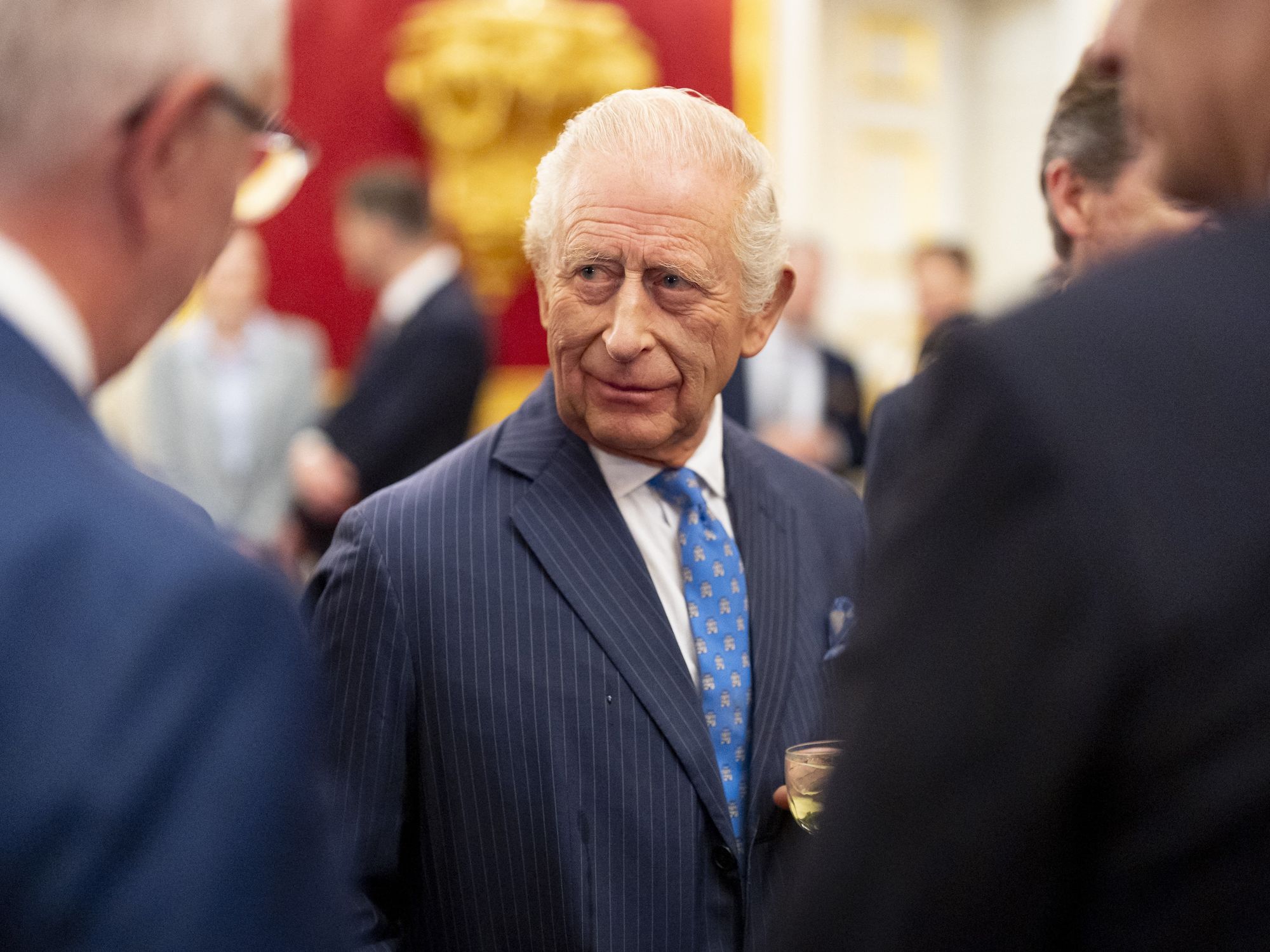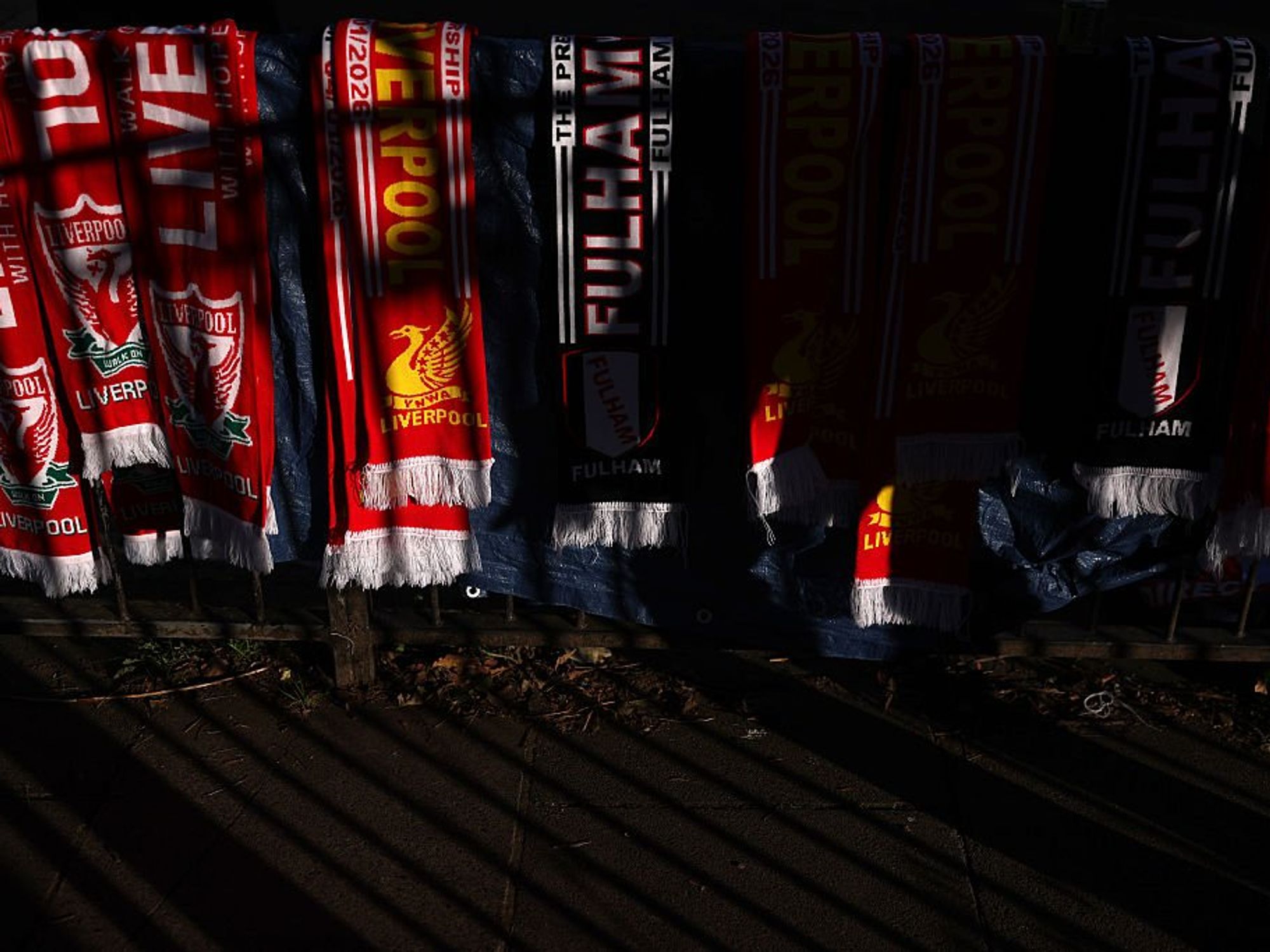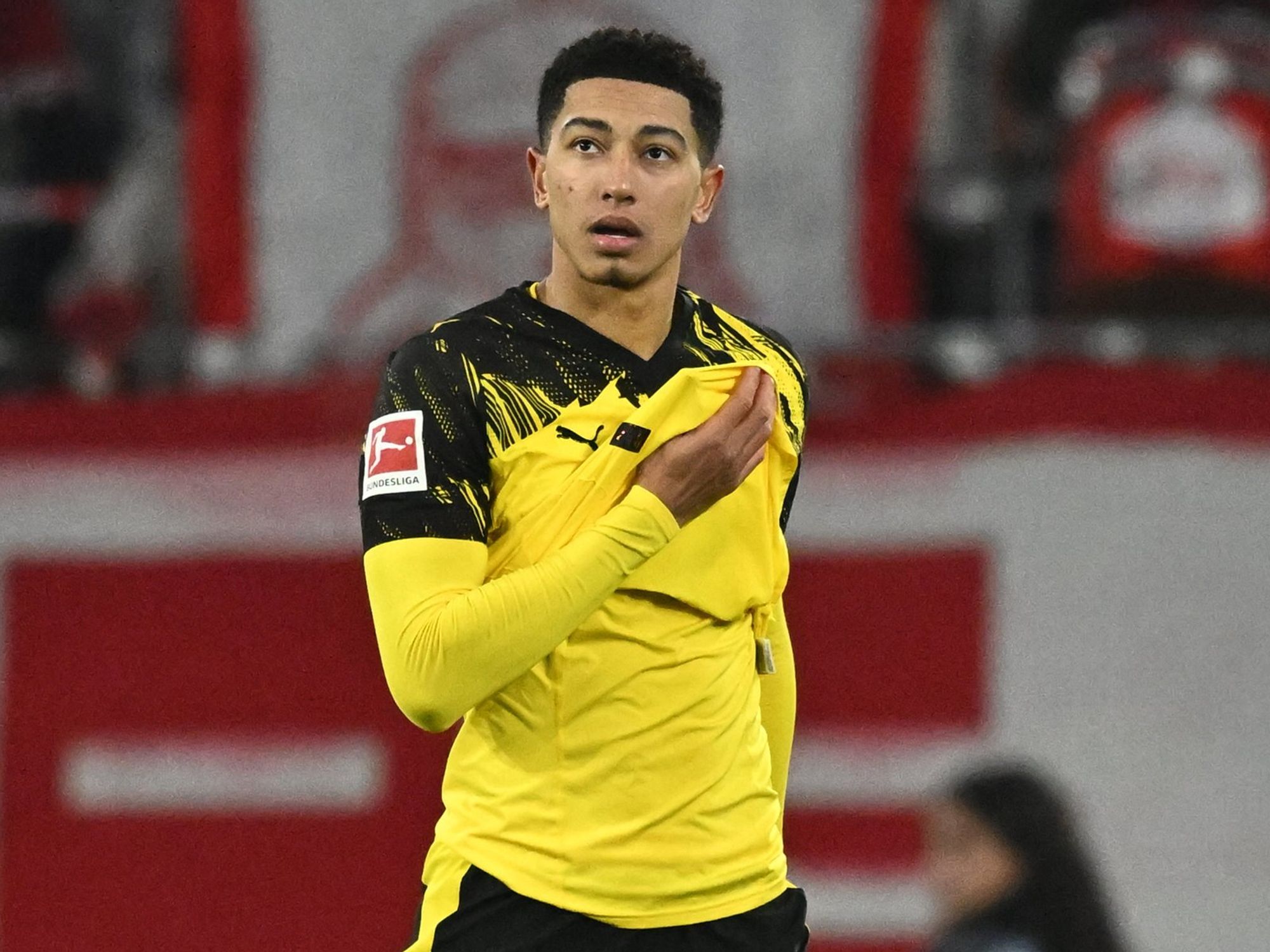Eurovision viewing figures take major hit after contest dominated by controversy and backlash

The drop-off comes amid a series of boycotts and rows featuring acts from Israel and the Netherlands
Don't Miss
Most Read
Eurovision's viewing figures have taken a knock since last year, it has been revealed, as the fall out from a string of controversies surrounding this year's song contest continues to spiral.
Saturday night's final, broadcast by the BBC, reeled in an average of 7.64million people and peaked at 8.46million.
Last year's competition - hosted in the UK for the first time in 25 years - enjoyed a five-minute peak of 11million people tuning in, with an average viewing figure of 9.98million, the BBC said at the time.
Swiss act Nemo ended up taking home the trophy at this year's event in the Swedish city of Malmo - but the range of performances on display followed a couple of notable controversies.
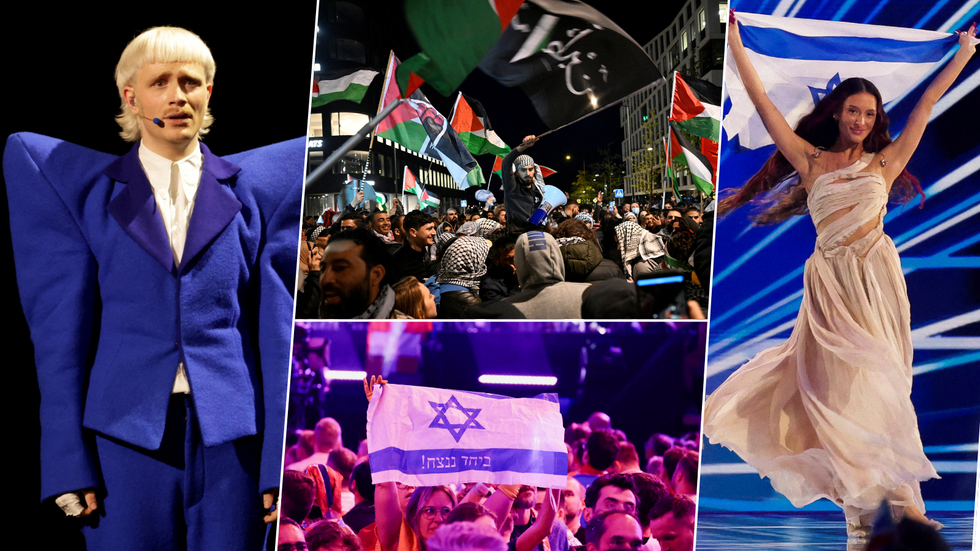
The performances on display at the grand final followed a couple of notable controversies
|Reuters
Dutch entry Joost Klein, who was set to sing his viral hit "Europapa", had been disqualified mere hours before the final, while the competition had suffered a series of boycotts and rows over Israeli act Eden Golan's participation in the wake of her homeland's military response in Gaza to the October 7 Hamas attacks.
Klein officially had his spot in the final revoked following an "incident" which led to an investigation by Swedish police in Malmo.
Social media was awash with speculation as to why Klein had been disqualified, with rumours running rife about his 'cancellation' being linked to his stance on Israeli participation.
But AVROTROS, the organisers behind the Netherlands' Eurovision entry, slammed the European Broadcasting Union (EBU)'s decision to prevent Klein from performing.
MADNESS IN MALMO - READ MORE ON EUROVISION:
- 'Virtue signalling GALORE!' Eurovision viewers fume 'go woke go broke' as 2024 final divides fans after chaotic build-up
- UK's Olly Alexander bags ZERO points from Europe's public vote as Switzerland wins controversial Eurovision
- Eurovision boss drowned out by loud boos and jeers amid Netherlands disqualification controversy and protests
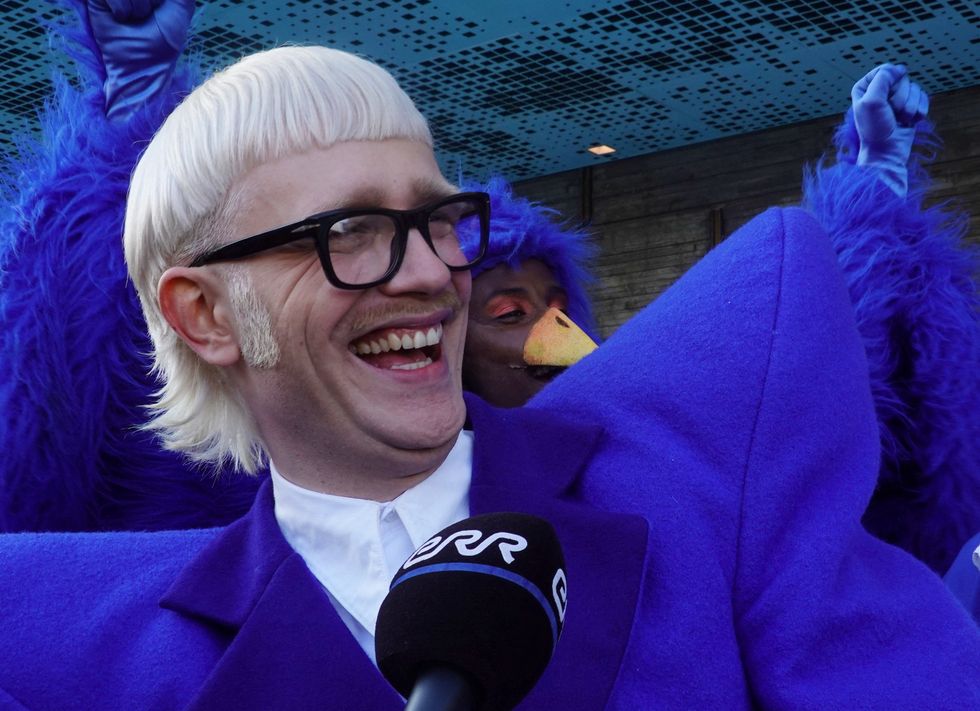
Joost Klein was banned from performing
|Reuters
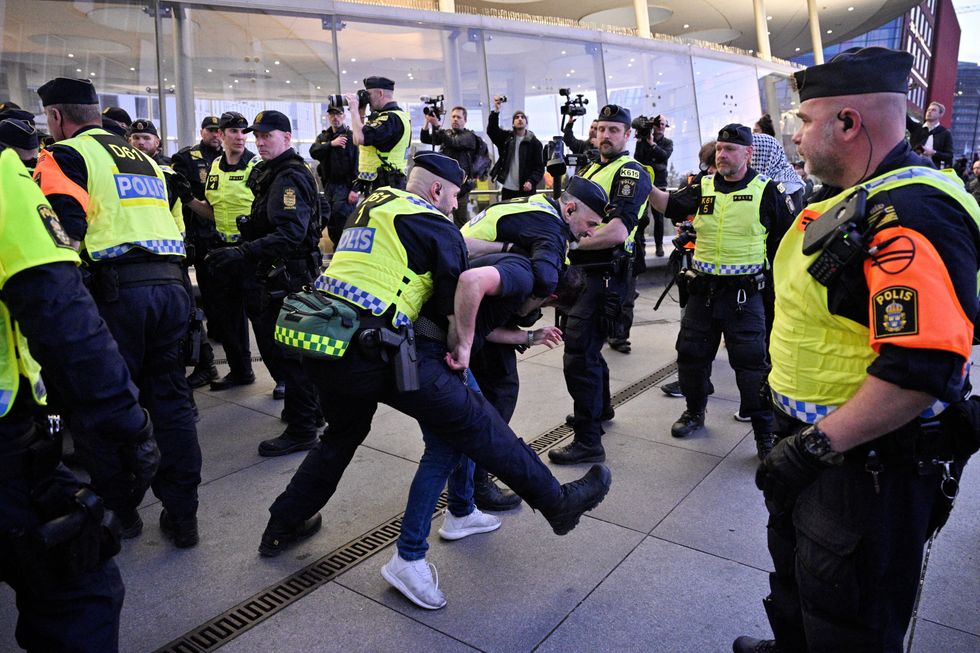
Police in Malmo had cracked down on protesters
|Reuters
It said in a statement: "An incident occurred after last Thursday’s performance. Against clearly made agreements, Joost was filmed when he had just gotten off stage and had to rush to the green room."
"At that moment, Joost repeatedly indicated that he did not want to be filmed. This wasn’t respected. This led to a threatening movement from Joost towards the camera.
"Joost did not touch the camerawoman. This incident was reported, followed by an investigation by the EBU and police."
Outside, crowds of protesters had surrounded the Malmo Arena; ahead of the event, Swedish police had expected 20,000 people to descend on the venue in protest against Golan's participation.
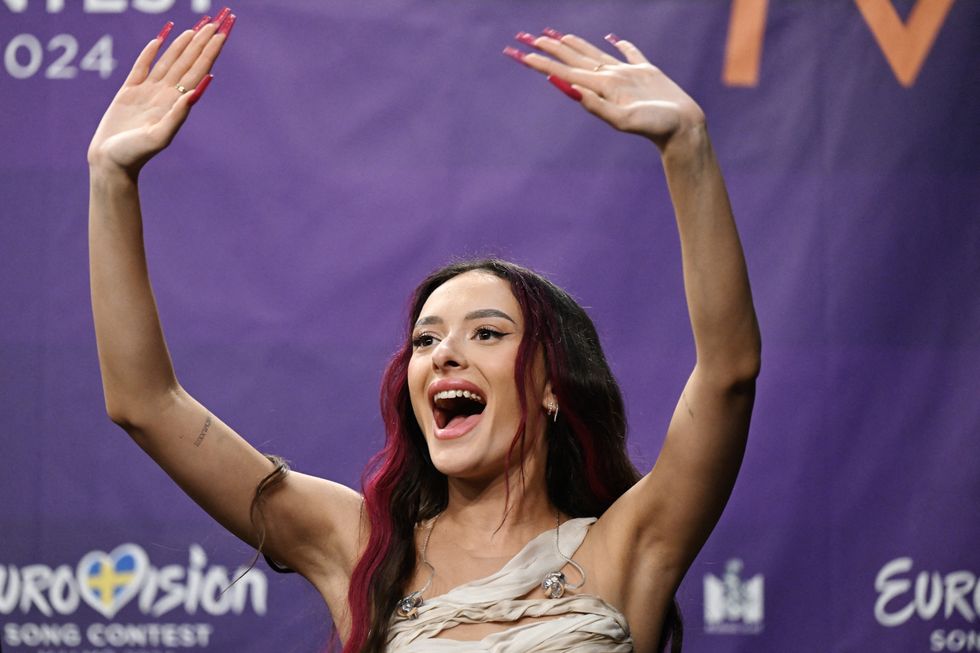 Israel's Eurovision entry Eden Golan has faced widespread criticism of her participation in the contest | Getty
Israel's Eurovision entry Eden Golan has faced widespread criticism of her participation in the contest | GettyWhile in the run-up to the competition, the UK's entry Olly Alexander - who finished with "nul points" from the public but 46 from the judges - had been forced into defending his participation on social media after a barrage of abuse by boycotting fans, not least because he signed a letter decrying Israel as an "apartheid regime" before he was unveiled as the British entry.
Critics had claimed Israel's inclusion at Eurovision represented "double standards" following Russia's expulsion from the competition after its invasion of Ukraine in 2022.
Fans outside the event had told GB News they didn't want to "bring politics into the show", claiming the competition was simply about "bringing people together" to enjoy the music.
However, others were in support of the protesters and their calls for Israel to be removed from the lineup, admitting they "disagreed" with the country's involvement.


